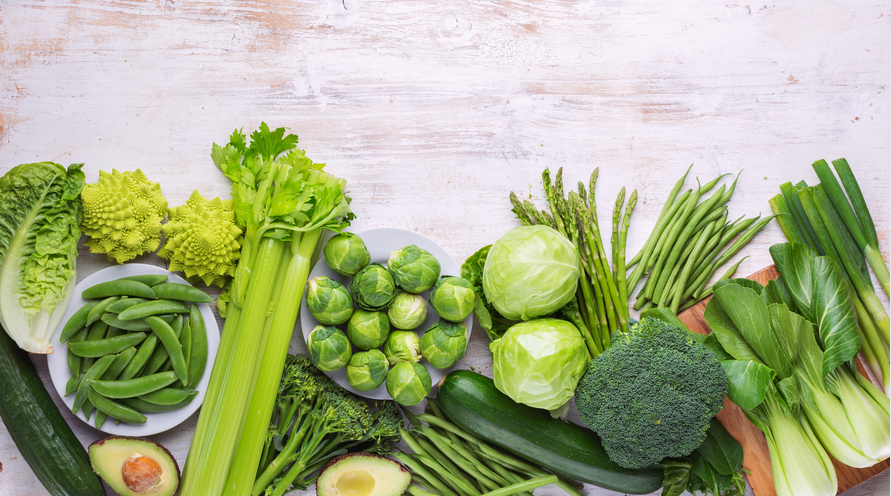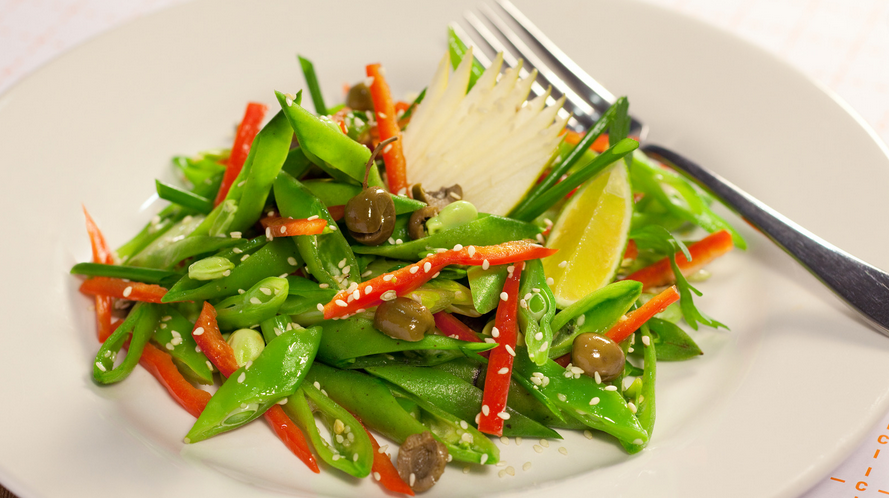10 Essential Benefits Of Eating Vegetables and Ways to Get Seniors to Eat More Every Day

Vegetables are essential to a healthy and balanced diet for everyone, especially seniors. Not only do they provide essential vitamins and minerals, but they can also help protect against chronic diseases and improve overall health. However, encouraging seniors to eat more vegetables can be a challenge.
In this blog post, we will discuss the essential benefits of eating vegetables and provide tips and tricks to help seniors get more vegetables into their diet every day. We will also provide some delicious and easy-to-prepare recipes that make eating vegetables enjoyable for seniors. Eating more vegetables can be a great way to improve health and wellness, so let’s get started on a healthier lifestyle!
The Benefits of Eating Vegetables for Seniors
As we age, it becomes increasingly vital to prioritize our nutrition to maintain optimal health and well-being. One of the essential components of a healthy diet for seniors is consuming a variety of vegetables, which provide numerous benefits for the aging body. Here are the benefits of eating vegetables.
1. Nutrient-rich Source of Vitamins and Minerals
Eating a diet rich in vegetables is one of the best ways for seniors to get the vitamins and minerals they need to maintain good health. As we age, our bodies become less efficient at absorbing nutrients from food, which can lead to nutrient deficiencies. Eating various colorful vegetables can help ensure seniors get the vitamins and minerals seniors need to stay healthy. For instance,
- Leafy green vegetables like spinach and kale are great sources of calcium, vitamin K, and vitamin A.
- While orange vegetables like sweet potatoes and carrots are high in beta-carotene and vitamin C.
2. Lower Risk of Eye Diseases

The risk of developing eye diseases such as cataracts and age-related macular degeneration increases as we age. Eating vegetables can help lower this risk by providing nutrients like beta-carotene, lutein, and zeaxanthin, essential for eye health.
Here are some examples of vegetables that are great for eye health:
- Carrots contain beta-carotene, which the body converts into vitamin A. Vitamin A is essential for eye health and can help prevent age-related macular degeneration.
- Sweet potatoes are high in beta-carotene, like carrots, and can also help prevent age-related macular degeneration.
3. High in Fiber
Another essential benefit of eating vegetables for seniors is that they are high in fiber. Fiber is an important nutrient that plays a crucial role in digestion and can help prevent constipation, a common problem among seniors. Fiber helps regulate blood sugar levels and can lower the risk of heart disease and types of cancer.
Here are some examples of vegetables that are high in fiber:
- High fiber content in Brussels sprouts may prevent constipation and improve heart health.
- Spinach is also high in fiber, which can help lower cholesterol levels while promoting digestion and heart health.
- Artichokes are high in fiber, which can lower the risk of heart disease and certain types of cancer.
- Green peas are high in fiber, help regulate blood sugar levels, and reduce the risk of diabetes.
4. Improved Immune System
The immune system is one of the first systems to become compromised in older age, making seniors more susceptible to getting sick. Consuming vegetables can help strengthen the senior immune system, prevent illnesses, and aid in healing from sickness.
Here are some examples of vegetables that can improve the immune system:
- Allicin, a compound abundant in garlic, has been shown to enhance the immune system and lower the likelihood of catching colds and the flu.
- Broccoli is high in vitamin C, a powerful antioxidant that can help boost the immune system and reduce inflammation in the body.
- Sweet potatoes are high in beta-carotene, which has been shown to boost the immune system and protect against infections.
- Spinach contains a significant amount of vitamin E, which can contribute to strengthening the immune system and providing protection against bacterial and viral infections.
Maintaining a healthy immune system is one of the best ways for seniors to stay active and independent in their later years.
5. Better Bone Health

Elderly are at an increased risk of developing osteoporosis, a condition that weakens a person’s bones and increases the risk of fractures. Eating a diet rich in vegetables improve bone health and reduces the risk of osteoporosis. Vegetables are a good source of nutrients like calcium, magnesium, and vitamin K, which are important for maintaining strong bones.
Here are some examples of vegetables that are high in bone-healthy nutrients:
- Calcium and vitamin K are abundant in dark, leafy vegetables like spinach, kale, and collard.
- Broccoli is a good source of calcium, vitamin K, and magnesium.
- Sweet potatoes are high in potassium, a nutrient that can help reduce the risk of fractures.
- Vitamin C is abundant in bell peppers, which may aid in the absorption of calcium within the body.
Including these bone-healthy vegetables in their diet can help seniors maintain strong bones and reduce the risk of fractures.
6. Improved Cardiovascular Health
The heart is the most important organ for regulating blood flow in the body, so it’s vital for seniors to maintain optimal cardiovascular health. Eating plenty of fruits and vegetables that are high in antioxidants can help protect the heart from harmful free radicals, which can damage the arteries.
Some of the best vegetables for cardiovascular health include:
- Leafy greens like spinach and kale are high in nitrates, which can help lower blood pressure and improve blood flow.
- Beets are also high in nitrates and can help lower blood pressure and improve exercise performance.
- Brussels sprouts are high in fiber and can help reduce cholesterol levels, lowering cardiovascular disease risks.
Keep your elderly loved one active, feeling healthy and safe at home as they age. By eating a wide variety of vegetables, they can be sure to maintain the health they’ve worked so hard to achieve.
7. Improved Mood and Mental Health
Seniors who eat a diet that is high in vegetables may also experience improved mood and mental health. Vegetables are a good source of nutrients like folate, vitamin B6, and antioxidants, all of which have been shown to positively impact mental health.
Here are some examples of vegetables that are great for mood and mental health:
- Spinach and kale are high in folate, a nutrient that has been shown to improve mood and reduce the risk of depression.
- Vitamin C is abundant in bell peppers, and it can help reduce stress and improve mood.
- Avocado is high in healthy fats and vitamin B6, both of which have been shown to positively impact mood and mental health.
- Lycopene, an antioxidant found in tomatoes, has been shown to improve mental health.
Seniors looking to improve their mood and mental health should eat a wide variety of colorful vegetables every day.
8. Improves Skin Quality

One of the benefits of eating vegetables is they can help improve skin quality, which can be especially important for seniors who may experience age-related changes to their skin. Vegetables are a good source of nutrients like vitamin C, vitamin A, and antioxidants, all of which can help seniors improve skin health and reduce the signs of aging.
Here are some examples of vegetables that are great for skin health:
- Bell peppers have vitamin C, which can help boost collagen production and reduce any signs of aging.
- Sweet potatoes are high in beta-carotene, which can help protect the skin from sun damage and improve skin texture.
- Spinach is a good source of vitamin A, which can improve skin texture and reduce wrinkles.
Including these skin-healthy vegetables in their diet can help seniors maintain healthy, vibrant-looking skin.
Ways to Get Seniors to Eat More Every Day
The benefits of eating vegetables are immense, but it can be challenging to get your seniors to eat them every day. If they aren’t a fan of vegetables in general, you may have to get creative with recipes. Try some of these tips for creative ways to sneak more veggies into their diet:
1. Make It Taste Good
One of the most important ways to get seniors to eat more vegetables is to make them taste good. Adding spices and herbs, roasting vegetables, or sautéing them in garlic and olive oil can enhance their flavor. Some tips to make vegetables taste better are:
- Use flavorful seasonings like basil, thyme, rosemary, or cumin to add taste and aroma to your vegetables.
- Add some sweetness to vegetables by roasting them with honey or maple syrup.
- Try different cooking techniques like grilling, broiling, or stir-frying to enhance the flavor of your veggies.
2. Keep it Simple
Simple recipes can make it easier for seniors to incorporate vegetables into their diet. Here are some ideas:
- Mix steamed or roasted vegetables with pasta, rice, or quinoa.
- Make a simple salad with fresh greens and a variety of foods.
- Add diced vegetables to soups, stews, or chili.
3. Make it Visually Appealing

The presentation of healthy food can be just as important as the taste. Seniors may be more willing to eat vegetables if they look appealing. Some tips to make vegetables visually appealing are:
- Use a variety of colorful vegetables like red, yellow, orange, and green.
- Arrange vegetables in a colorful and visually appealing way on a plate.
- Use a variety of textures by combining roasted, steamed, and raw vegetables in a salad.
4. Make it Convenient
Making vegetables convenient to eat can encourage seniors to eat them more often. Here are some tips:
- Pre-cut vegetables into snack-sized pieces and store them in the fridge.
- Buy pre-washed and pre-cut vegetables to save time.
- Use frozen vegetables that can be easily microwaved or steamed.
5. Make it a Social Activity
Eating vegetables can be more enjoyable if it’s a social activity. Some ideas to make it social are:
- Encourage seniors to eat meals with family or friends.
- Join a cooking class or attend a cooking demonstration.
- Organize a potluck or dinner party with a vegetable theme.
6. Try New Recipes

Trying new recipes can help seniors discover new vegetables and flavors. Here are some ideas:
- Look for recipes on the internet or in cookbooks that include vegetables that seniors may not have tried before.
- Experiment with new ways to prepare vegetables, like grilling or roasting.
- Encourage seniors to share their favorite vegetable recipes with others.
The Takeaway
Eating vegetables offers many health benefits, particularly for seniors. Eating a variety of vegetables daily helps seniors get the nutrients they need, reduces their risk of diseases, and helps them maintain a healthy weight. Incorporating vegetables into meals or snacks and experimenting with new recipes and flavors can help seniors to enjoy eating vegetables every day.
Here at Serenity Senior Care, we understand the challenges of trying to get seniors to eat more vegetables. So we made this article to help you get seniors started on the journey to eating more vegetables every day. If you want to add some extra tips, we encourage you to do so in the comments section below.


